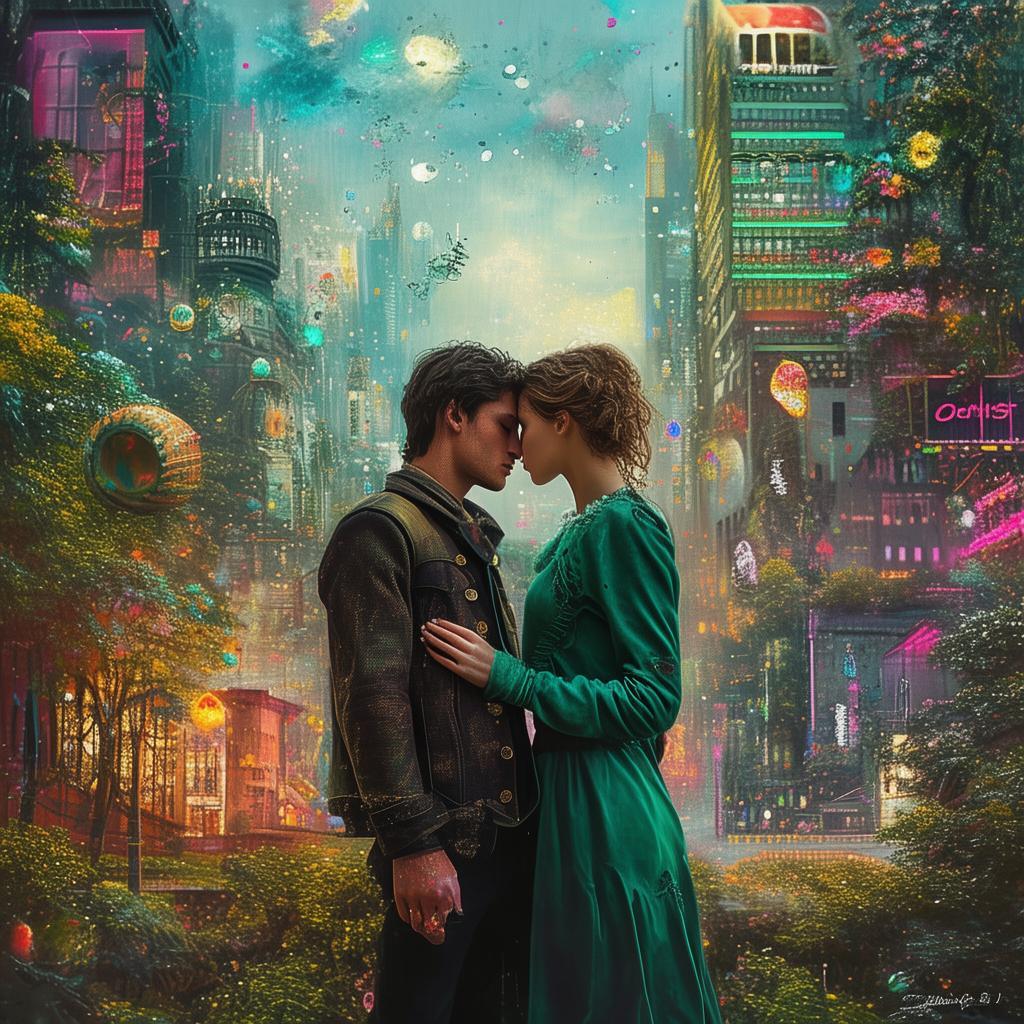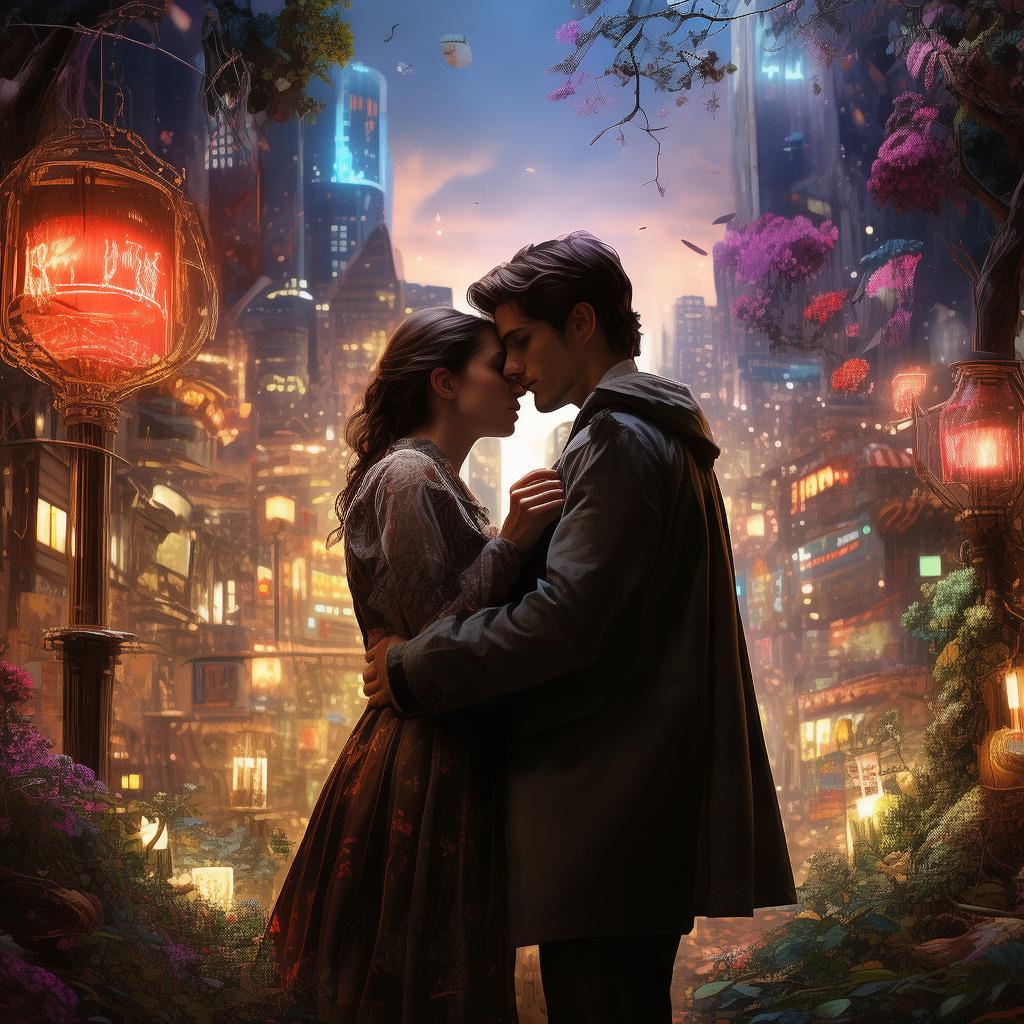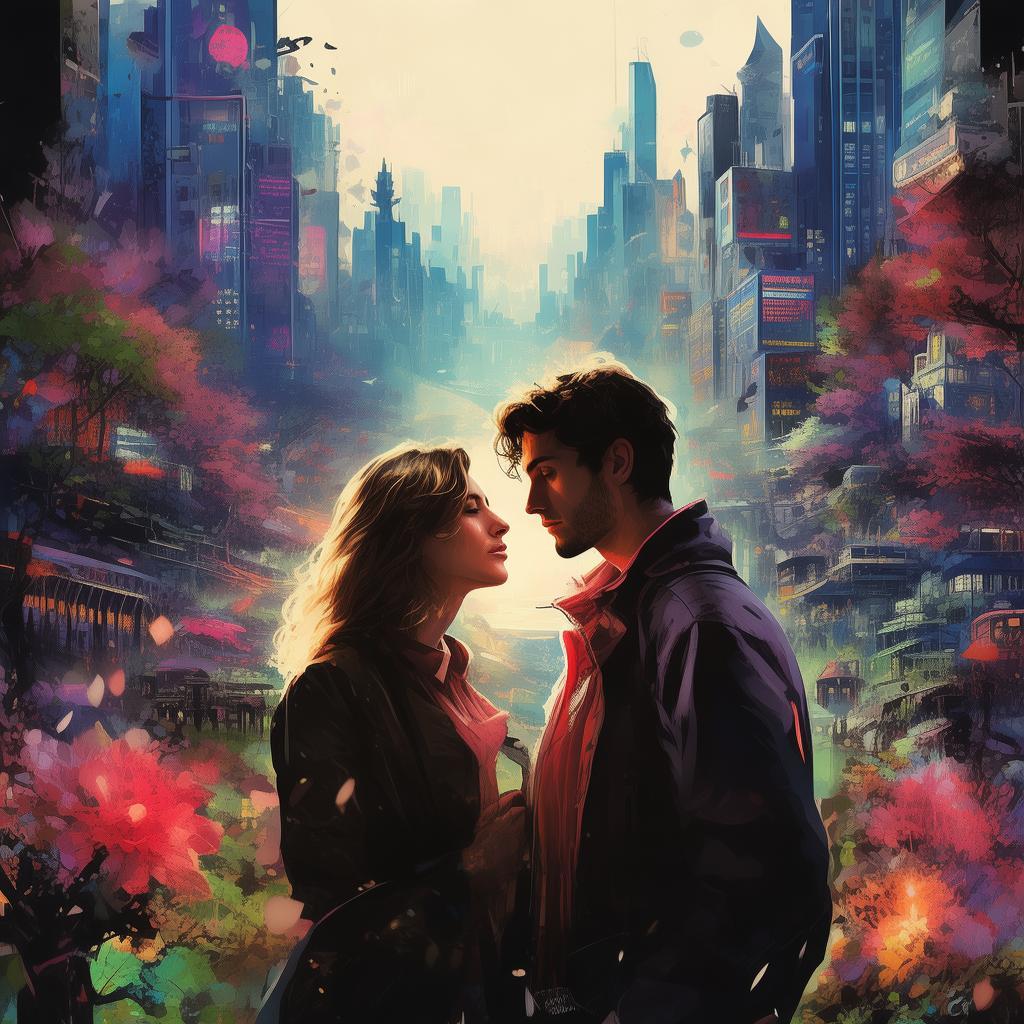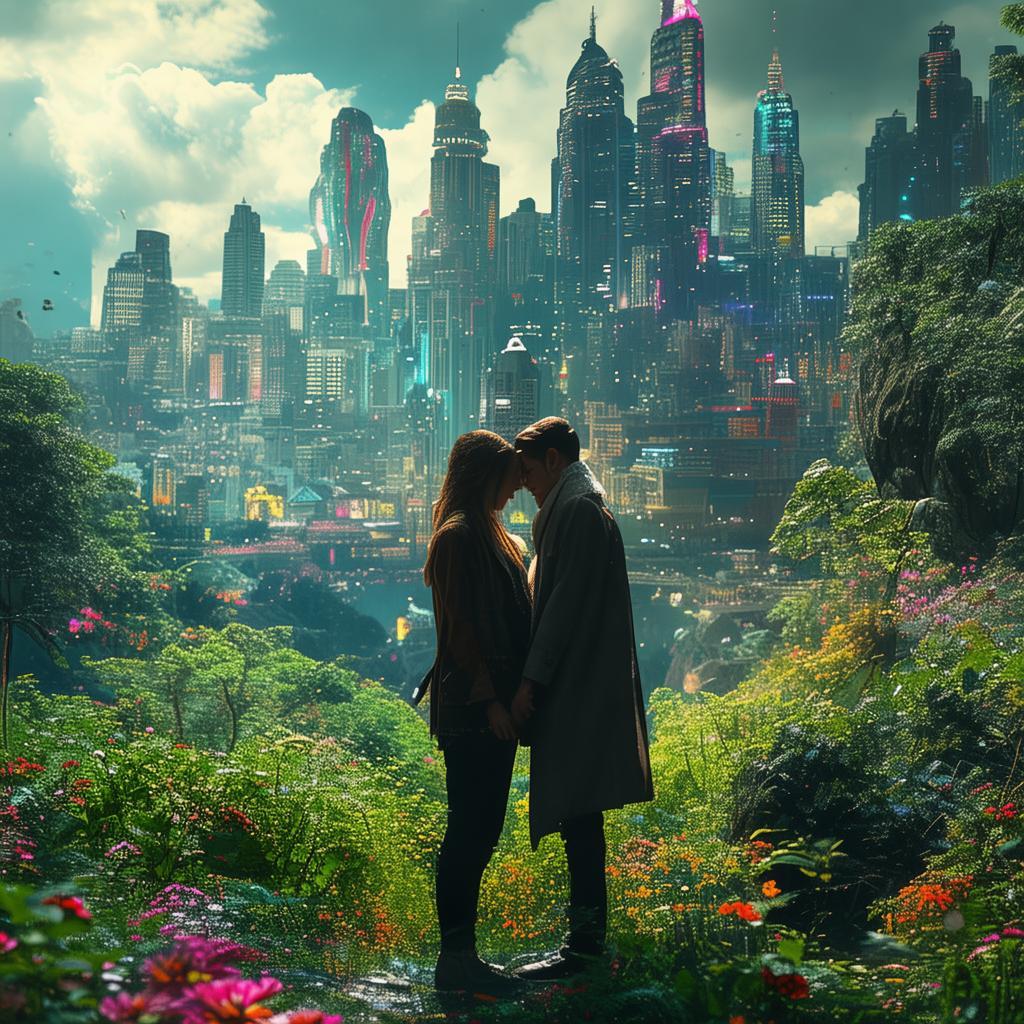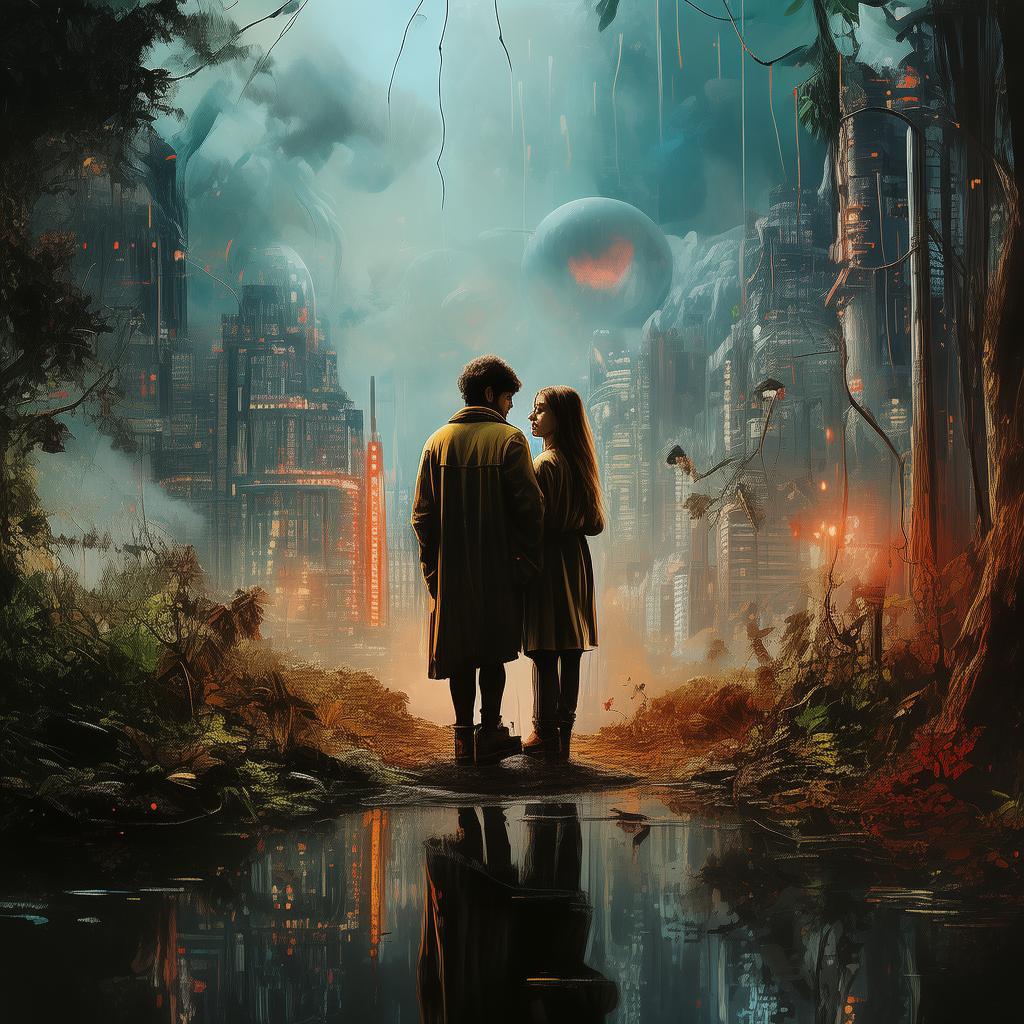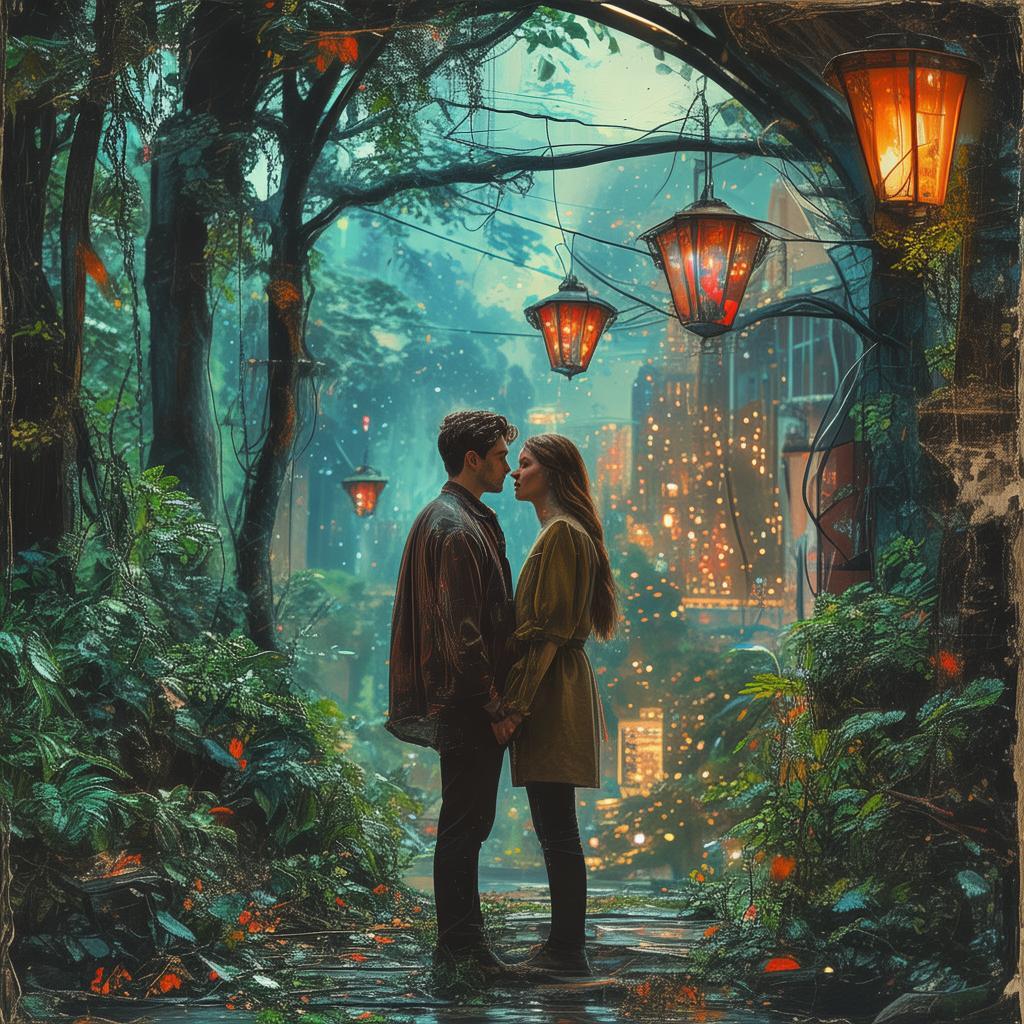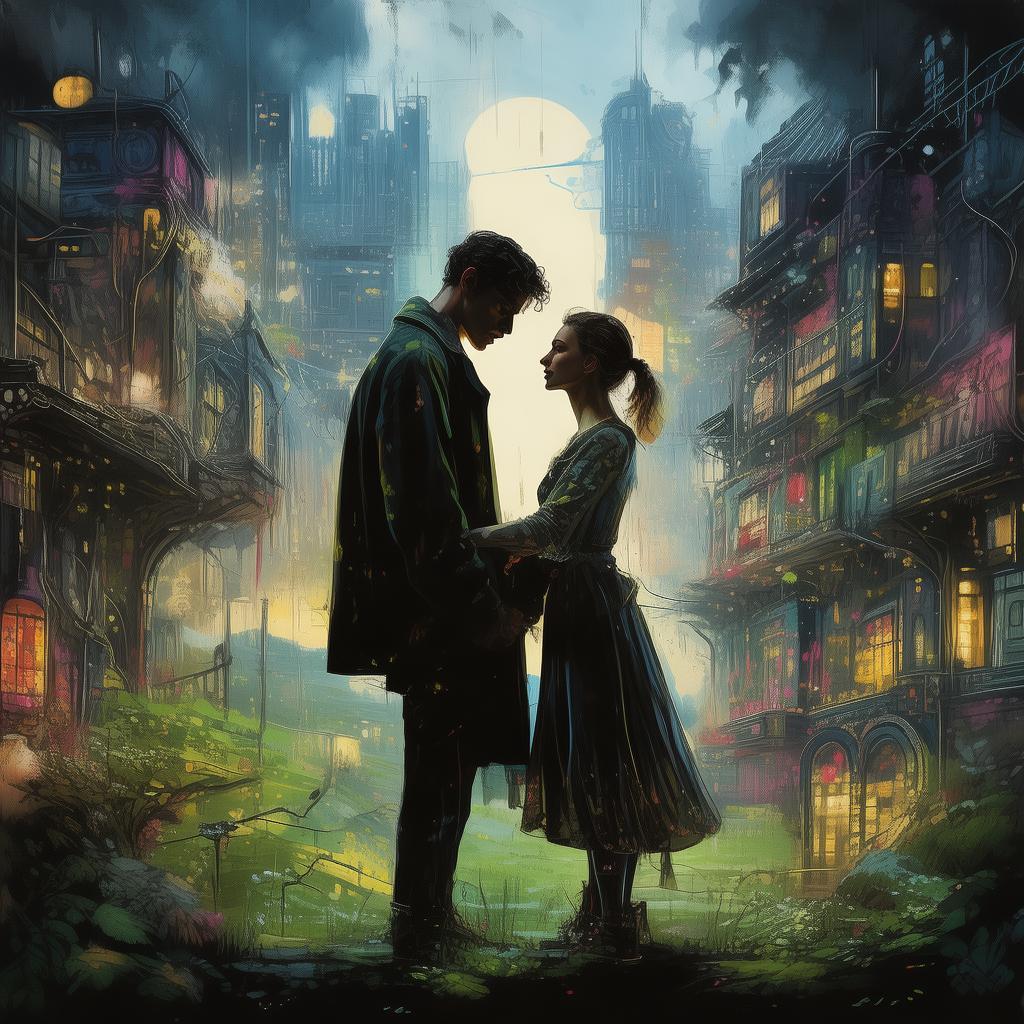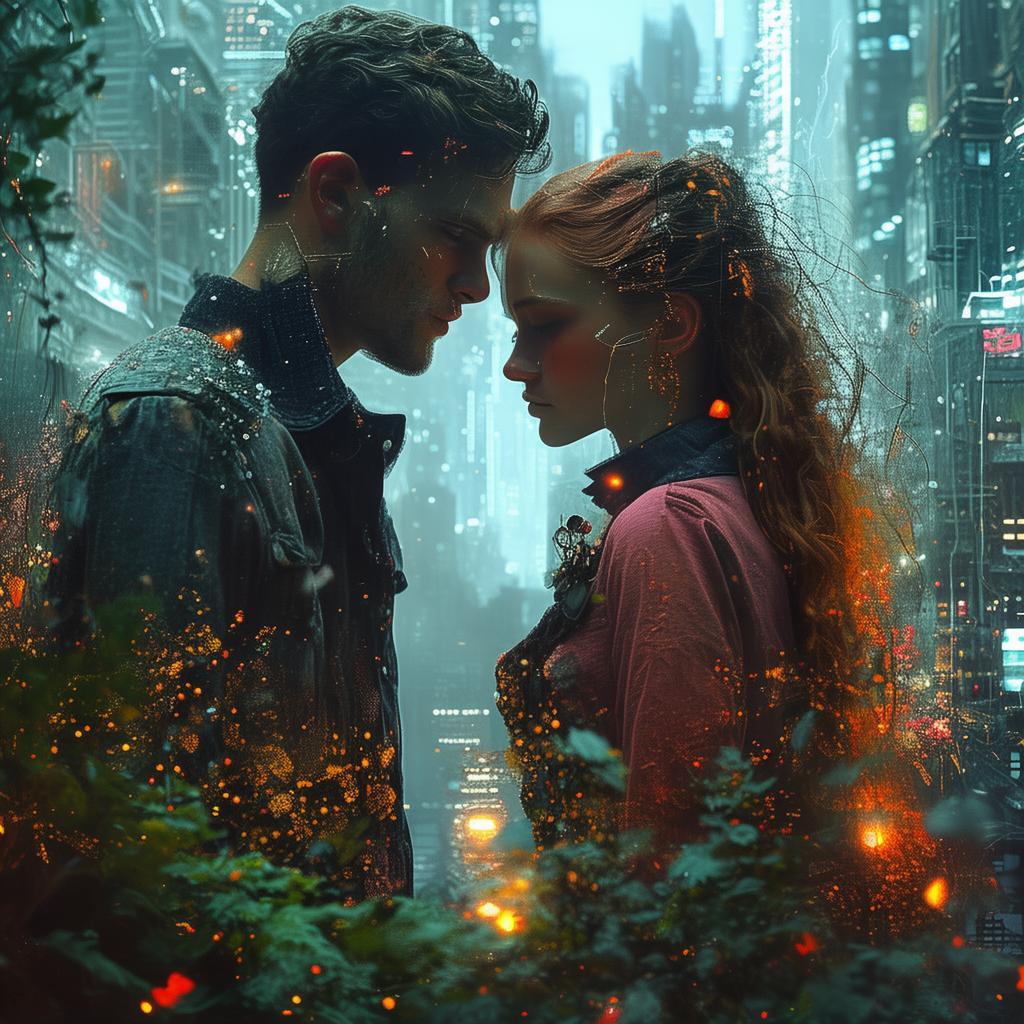The Heart's Labyrinth: A Love Unraveled
In the heart of Beijing, where the past and present danced together in a mesmerizing waltz, there lived a man whose mind was a labyrinth of genius and madness. His name was Luo Feng, a painter whose brushstrokes could bring life to the most abstract of dreams. His art was not just a reflection of his soul but a window into the deepest recesses of his mind.
Feng's world was a tapestry of vibrant colors and haunting shadows. His paintings were the whispers of his heart, the echoes of his dreams, and the silent screams of his fears. His most famous work, "The Love Story of a Mad Genius," was a series of portraits that captured the essence of love in all its forms—be it passionate, tragic, or serene.
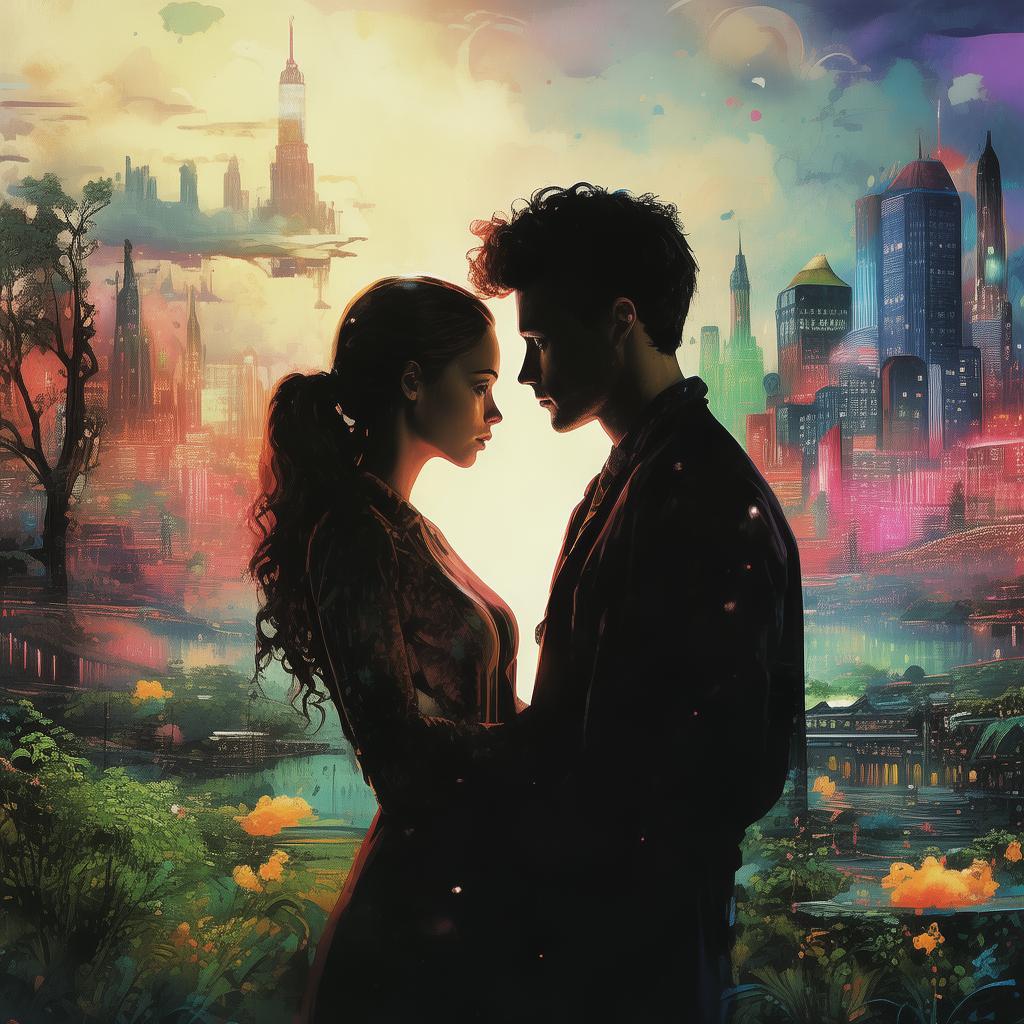
The story began with a woman named Mei, whose eyes held the world's secrets. She was the muse behind Feng's most profound works, the silent partner in his wild, passionate love affair with art. Mei was the embodiment of his dreams, the one who could see through the layers of his creation to the beating heart beneath.
Their love was a tempest, fierce and unyielding, a storm that threatened to tear them apart. Mei was the anchor to Feng's tempestuous soul, the one who believed in him when he was at his lowest, the one who knew his every secret, and yet, she was also the one who held the key to his deepest pain.
As the story unfolded, it became clear that the love between Feng and Mei was not a simple tale of romance. It was a complex dance of trust and betrayal, of passion and obsession. Mei was not just a woman to Feng; she was the keeper of his sanity, the one who could calm the storm within him.
One fateful night, as the moon hung low in the sky, casting its silver glow over the city, Feng discovered a truth that would change everything. Mei was not who he thought she was. She was a spy, a pawn in a game of power and control, and she had been manipulating him all along.
The revelation was a bombshell, shattering the fragile bonds of their love. Feng's world crumbled around him, and he was left to pick up the pieces of his shattered heart. In a fit of rage and despair, he locked himself away, his brushstrokes becoming wild and chaotic, his art a reflection of his inner turmoil.
Mei, seeing the pain she had caused, sought to make amends. She confessed her reasons for her actions, explaining that she had been forced into a life of espionage by a powerful figure who sought to control Feng's genius. Her confession was a bittersweet revelation, a testament to the complexity of human nature and the lengths one would go to protect the ones they loved.
Feng, torn between his love for Mei and his need for justice, was forced to confront the truth about his own life. He realized that his art had always been a reflection of his inner struggle, a battle between his genius and his madness. The love story he had painted was not just about Mei and him; it was about the love he had for himself, the love he had for his art, and the love he had for the world.
In a climactic twist, Feng decided to use his genius to outwit his enemies. He created a masterpiece that would reveal the truth about the powerful figure who had manipulated him and Mei. The painting was a masterpiece of deception and truth, a testament to the power of love and the resilience of the human spirit.
The final scene of the story saw Feng and Mei standing side by side, their hands intertwined, their eyes reflecting the same determination. They had both paid a heavy price for their love, but they had emerged stronger, their bond unbreakable.
As the sun rose over Beijing, casting its golden light over the city, Feng and Mei looked at each other and smiled. They had faced the labyrinth of their hearts and emerged victorious, their love story a testament to the enduring power of love, even in the face of madness and betrayal.
In the end, "The Love Story of a Mad Genius" was not just a painting; it was a journey, a journey of love, loss, and redemption. It was a story that would resonate with the hearts of all who dared to look beyond the surface, to see the truth that lay hidden within the labyrinth of the human soul.
✨ Original Statement ✨
All articles published on this website (including but not limited to text, images, videos, and other content) are original or authorized for reposting and are protected by relevant laws. Without the explicit written permission of this website, no individual or organization may copy, modify, repost, or use the content for commercial purposes.
If you need to quote or cooperate, please contact this site for authorization. We reserve the right to pursue legal responsibility for any unauthorized use.
Hereby declared.
